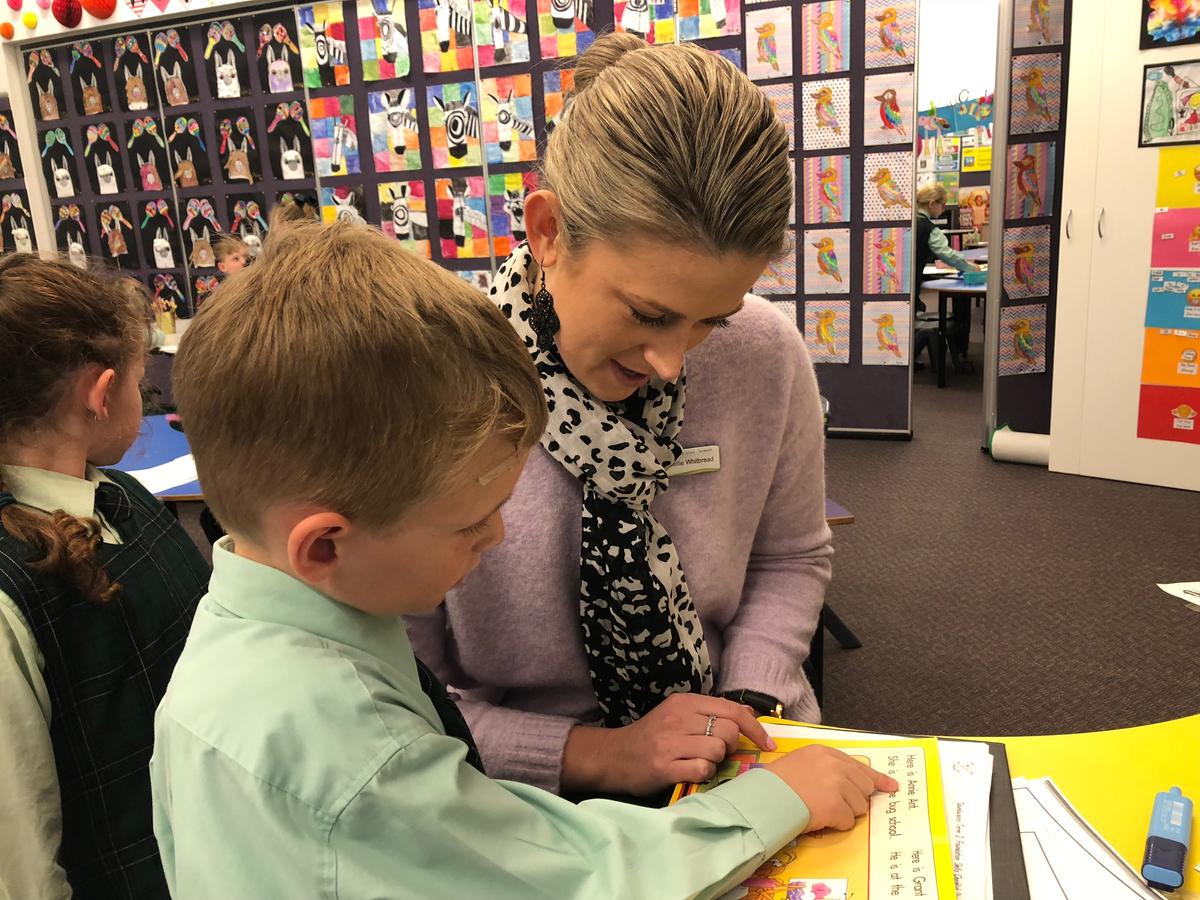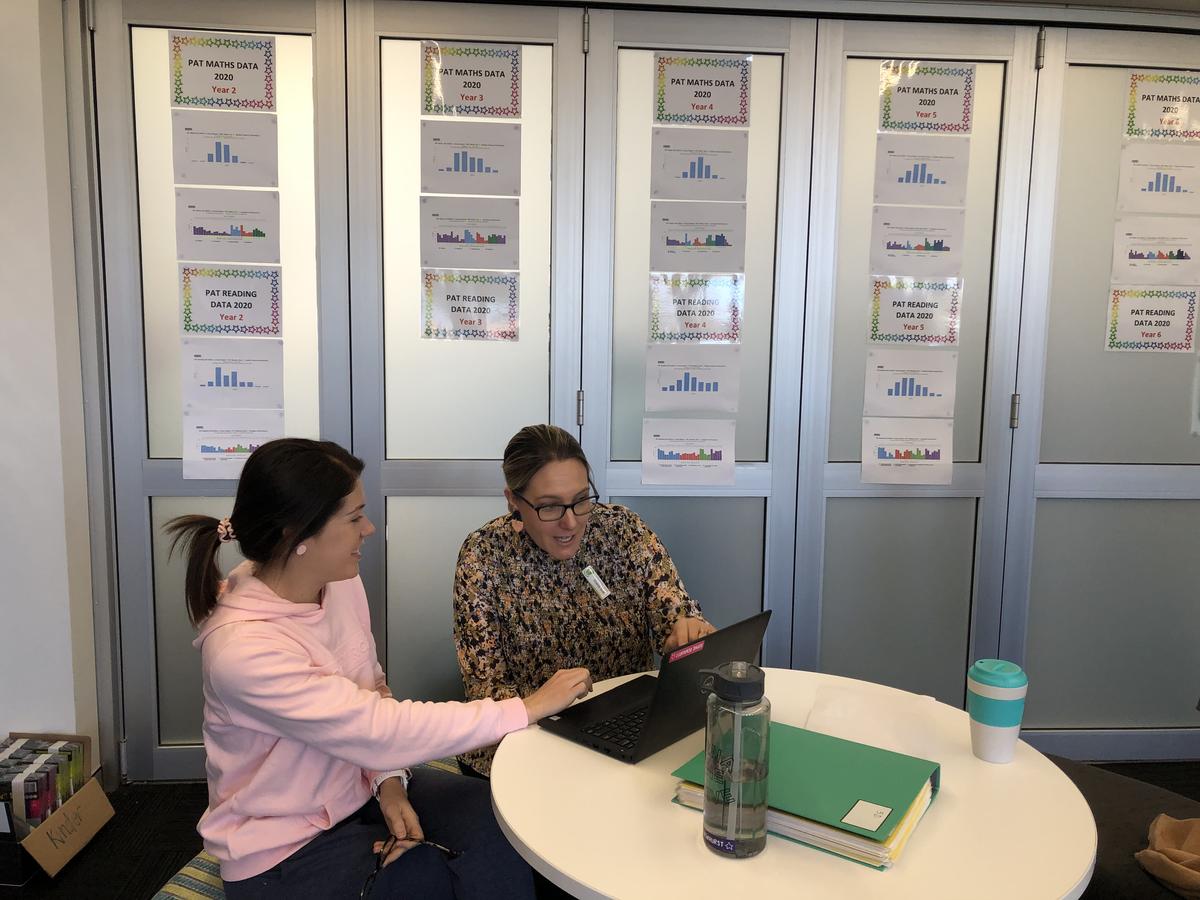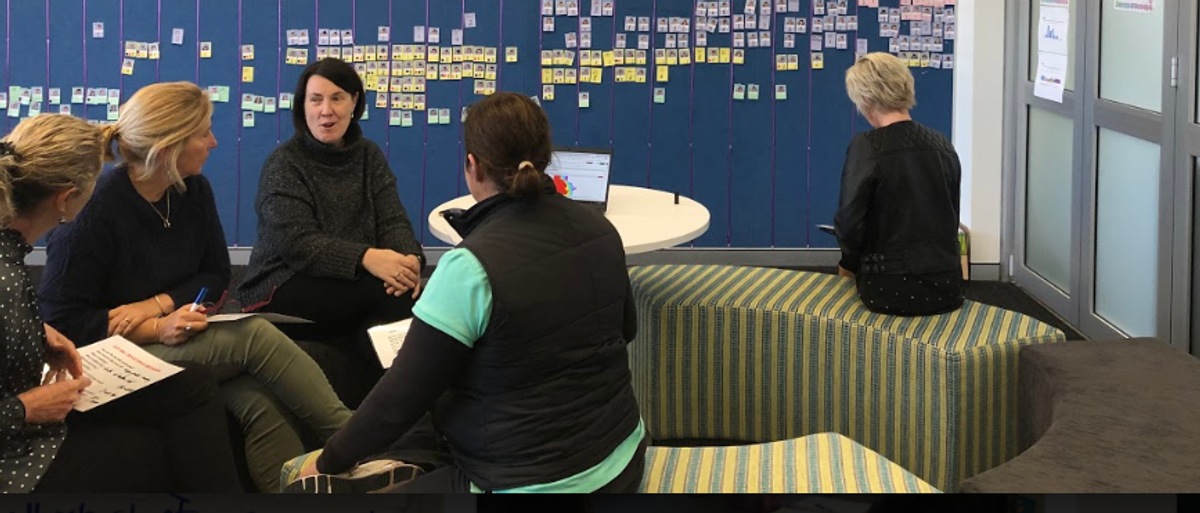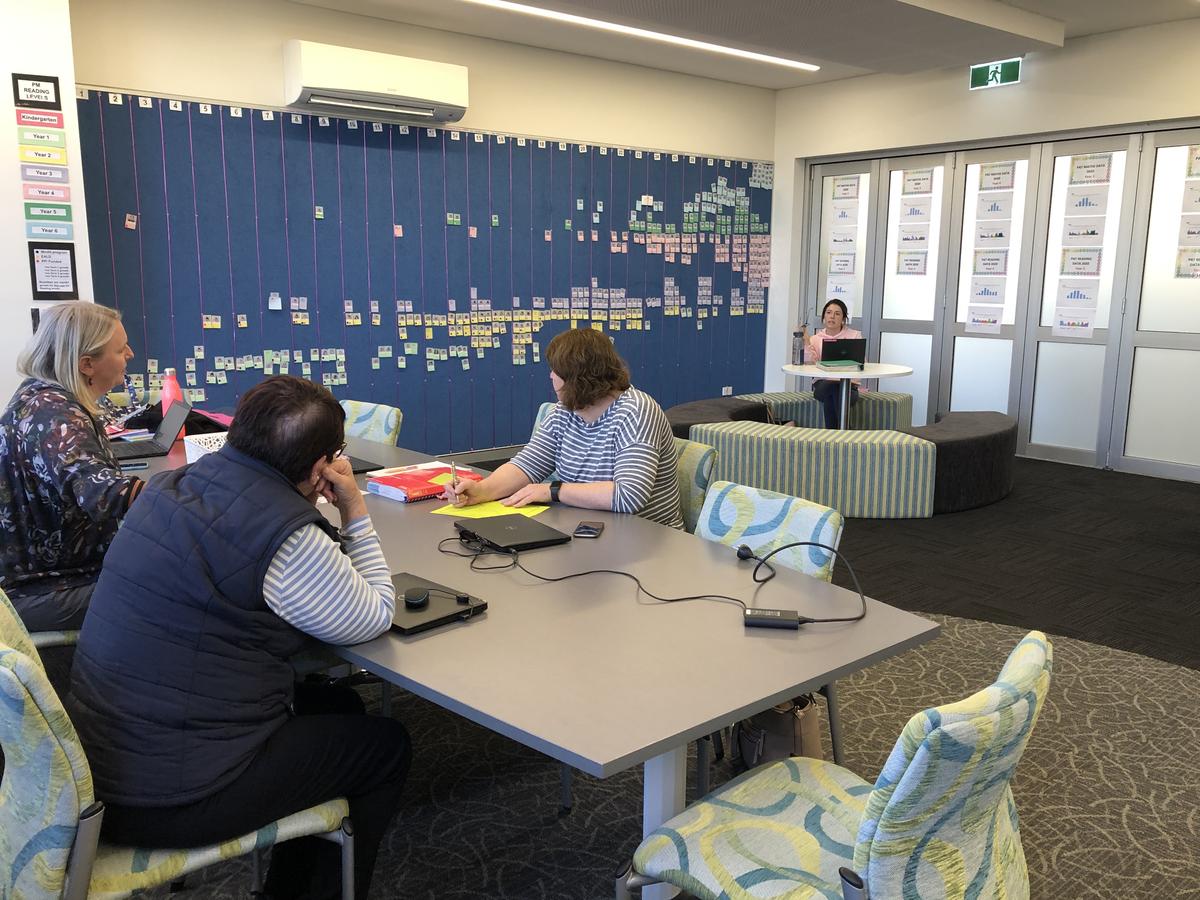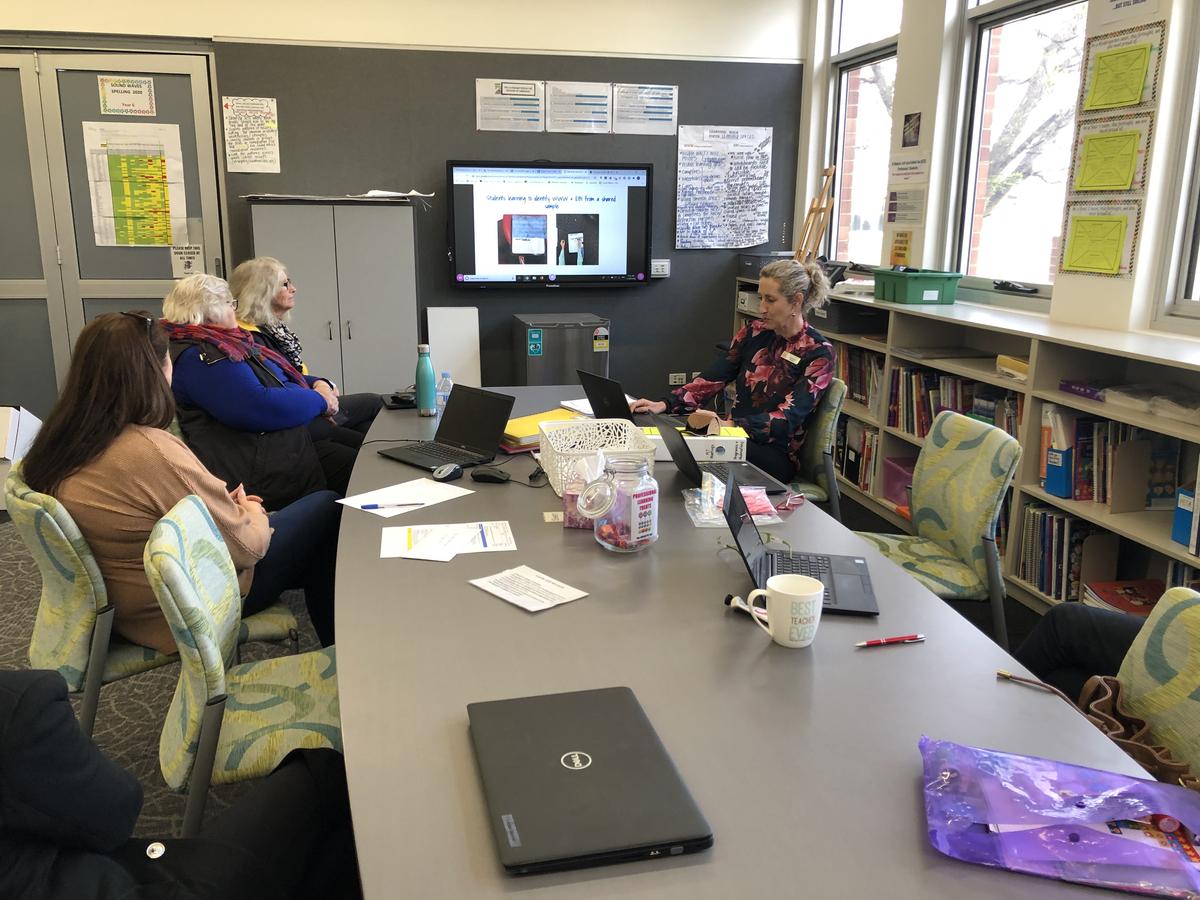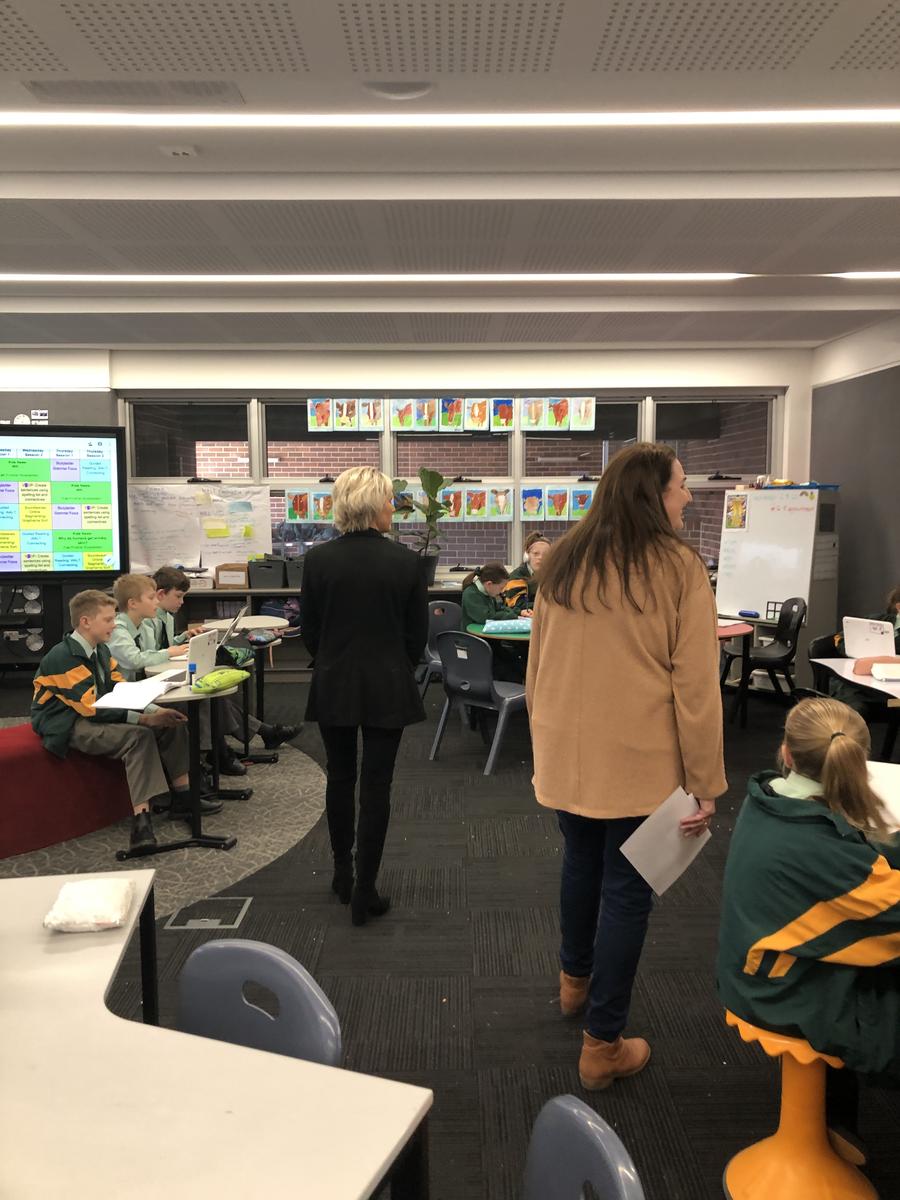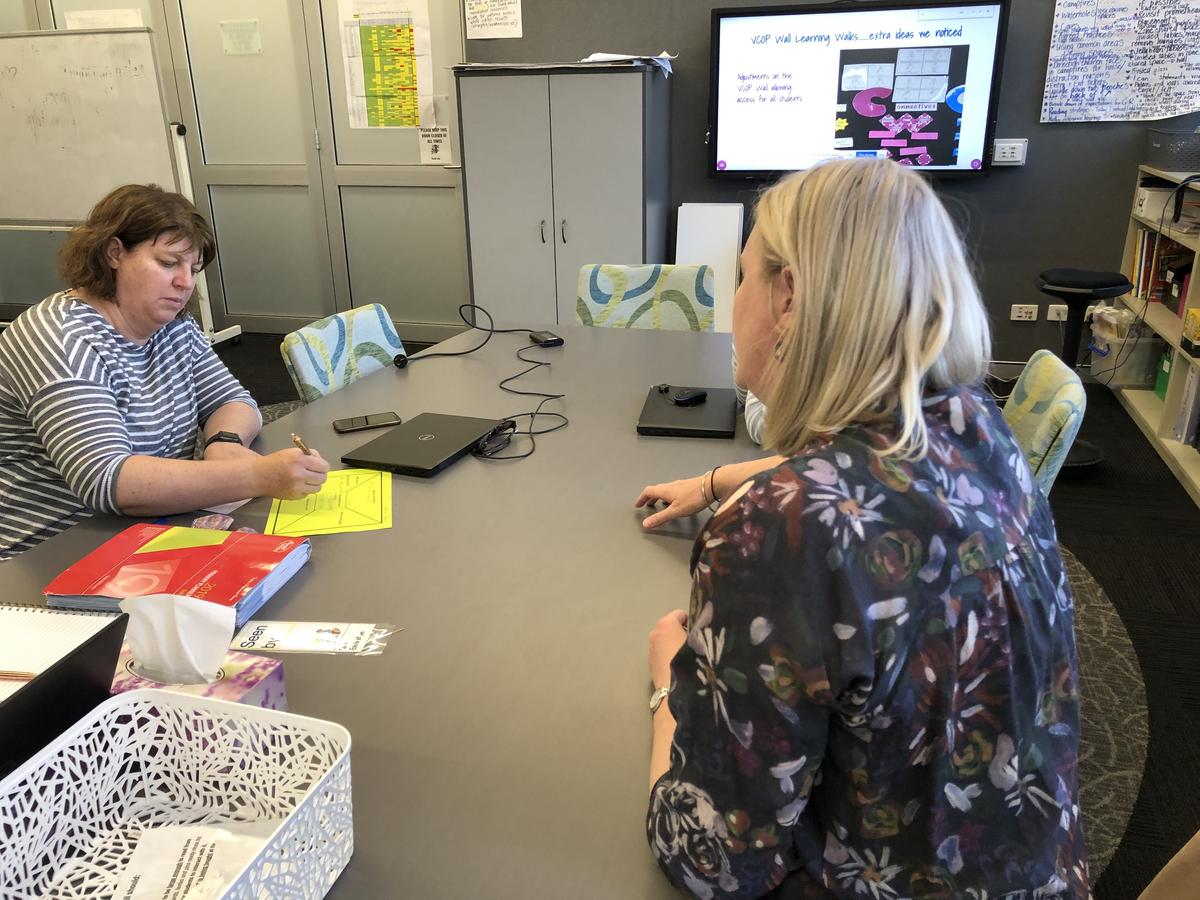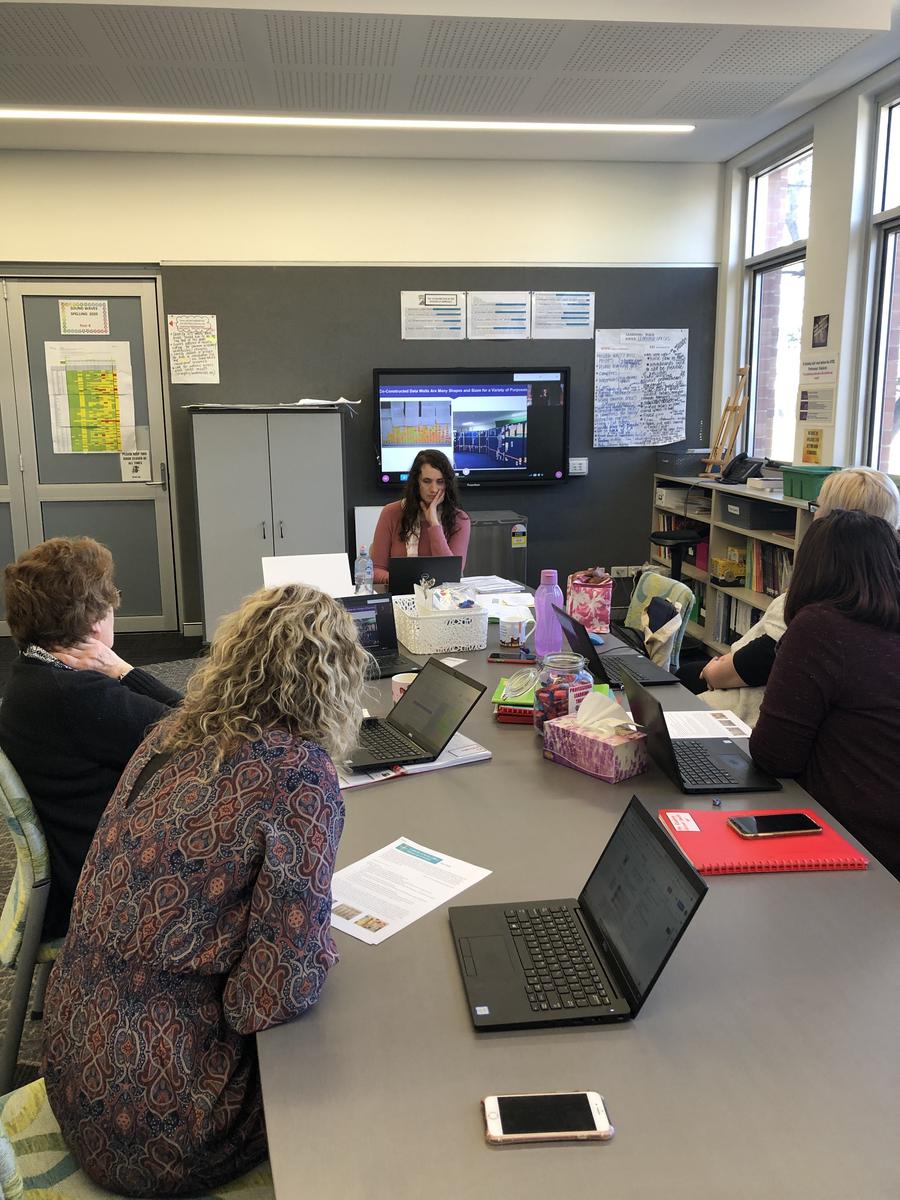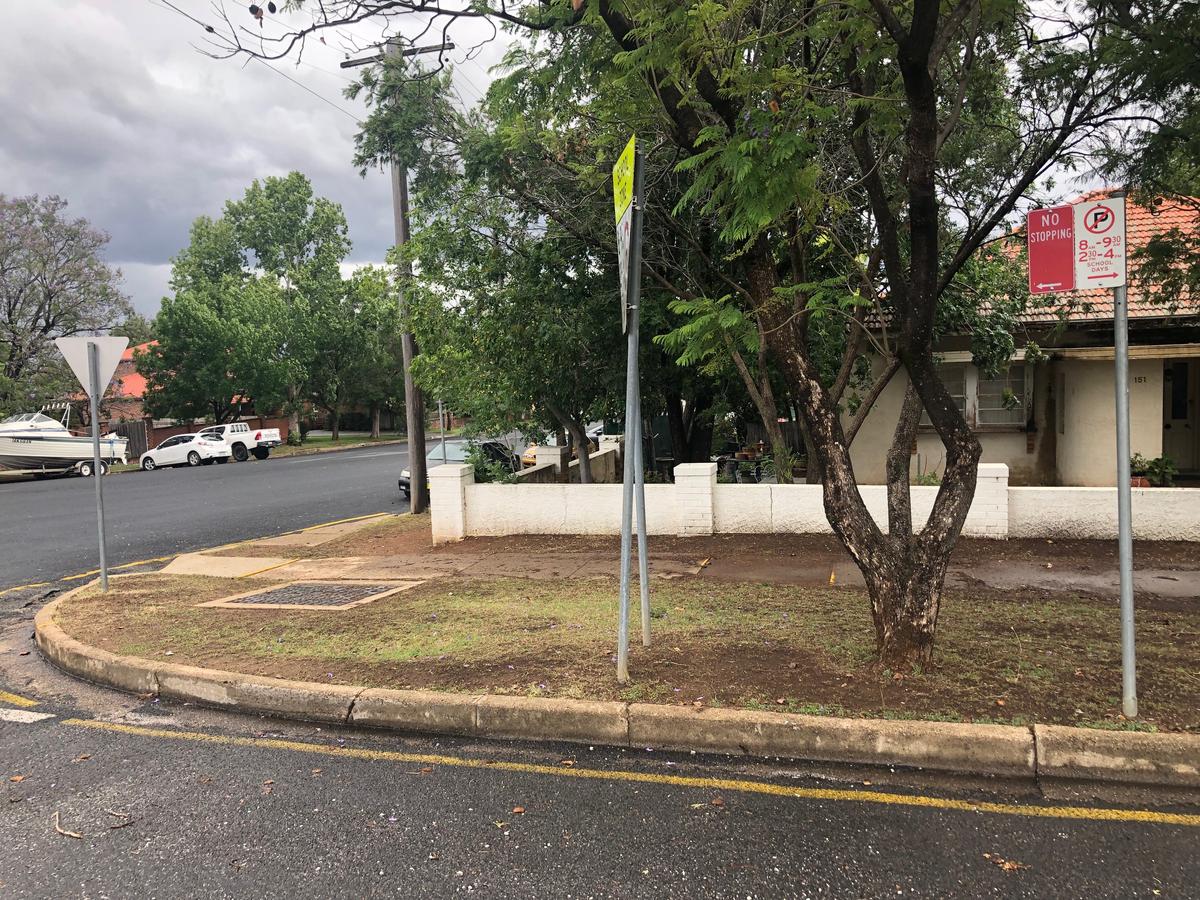GENERAL NEWS

SCHOOL UNIFORM CHANGE OVER
Due to the unseasonable weather, we have decided to allow students to wear either full summer uniform or full winter uniform. This is totally optional but we ask that both uniforms be worn neat and tidy until the end of the term. Our official changeover is Week 1, Term 4.
NATIONAL WALK SAFELY TO SCHOOL DAY: TOMORROW - FRIDAY 11TH SEPTEMBER
Now in its 21st year, National Walk Safely to School Day (WSTSD) is an annual event when all Primary School children will be encouraged to walk and commute safely to school. It is a Community Event seeking to promote Road Safety, Health, Public Transport and the Environment.
READING LEVELS EXPLAINED TO PARENTS
Often as teachers, we are asked questions by parents about reading levels. We value the positive partnership between parents and the school, so we hope you find this information helpful.
Avoid comparisons
Just as children learn to walk and talk at different times, so too with reading. Therefore, it is firstly important to avoid any comparison of children to their peers or siblings. There is much involved in teaching reading skills and strategies, but rest assured that every teacher at St Nicholas is working very hard to ensure personal growth with every child based on their individual needs.
Reading levels at St Nicholas explained
The formal reading assessment tool we use at St Nicholas is the PM Benchmark system (with levels from 1-30). The books are designed so that with the earlier levels (1-14) the difficulty/ challenge between levels is generally minimal, therefore children can gradually move through these levels in lots of small steps. The next range of levels (15-24) sees greater challenges and larger steps between each level, so progression through these takes longer. And the final range of levels (25-30) involves significantly greater challenges and much larger steps between levels. Progression through these upper levels takes a much longer time; often children remain on the same level for more than six months.
Why is my child bringing home readers of a particular level?
Parents need to know that the ‘home readers’ your children bring home are based on what is known as their ‘independent level’. This means that the books are not meant to be too challenging. The purpose of ‘home readers’ is for children to enjoy reading and develop confidence as they practice their skills at home with their parents. At school, however, the teachers work specifically with your child at a more challenging/ higher level known as their ‘instructional level’.
How do teachers at St Nicholas test reading and know when to move a child up a level/s?
Parents are often not aware that there is so much more to assessing a child’s reading than simply hearing them read a book. Whilst teachers informally hear your child read every week during guided reading sessions, they formally monitor and test your child’s reading through a very explicit and complex process (known as conducting a ‘running record’). This detailed assessment takes up to 20 minutes for each child. Through careful analysis and by applying numerical formulas, they can then determine a child’s ‘instructional reading level’. Our teachers are experienced and trained in assessing and analysing a wide range of technical elements of reading such as:
- errors and self-corrections (and identifying if these involve meaning, syntax or visual cues)
- word omissions, substitutions and insertions
- word attempts, repetition or appeals
- comprehension (literal, applied and inferential) of both fiction and non-fiction texts. Often we find that a child can read every word in a text but their deeper levels of comprehension are not yet evident.
In short, even if your child’s progression through the levels appears to take time, rest assured that they are receiving quality reading instruction every single day at school. We hope this information assures you that there is more to your child’s reading development than the number on the front of their home readers.
Thank you for your continued support and interest in your child’s education. And please don’t forget to continue to enjoy the simple pleasure of sharing a book of any description with your child.....just for the love of it!
by Amanda Doyle and Shelly O'Sullivan (Leaders of Pedagogy)
WHAT IS PLT and WHAT GOES ON AT ST NICHOLAS SCHOOL STAFF MEETING?
One of the tremendous things about St Nicholas school is that we believe: the learning of our staff is just as important as the learning of our students. Our weekly staff meetings are designed for Professional Development so that teachers are constantly being upskilled in their knowledge and practice. Guided Reading, Big Write & VCOP, Student Wellbeing and Thornburg’s Learning Spaces are just a sample of the focus areas of 2020.
In addition to staff meetings, you are no doubt aware that once a fortnight your child’s teacher spends a day working away from their students, whilst another regular staff member steps in and continues teaching from the class program. These days are extremely beneficial for teachers as they work as part of a Professional Learning Team (PLT) alongside their grade colleagues and the Leaders of Pedagogy. During this day student data is analysed, high impact teaching & learning strategies are discussed, and future planning (to meet current student needs) occurs. In addition to this, our teachers often have an opportunity to go on a ‘Learning Walk’ where they can observe specific practices across the school, essentially learning from their ‘expert’ colleagues and ‘checking in’ on student learning. Engagement in (and discussion of) professional reading is also a regular feature of our PLT meeting agenda.
Take a quick look at these snapshots of our staff in action, which truly echoes the sentiment ...........“Who dares to teach, must never cease to learn”
Amanda Doyle & Shelly O’Sullivan (Leaders of Pedagogy)
CAR PICK-UPS
Road Rules & Common Courtesy
Parents are reminded to adhere to the road rules and traffic signs when dropping off or picking up their child/ren. Please note, there is a NO STOPPING SIGN at the corner of Carthage and Roderick Streets. NO STOPPING means NO STOPPING. Please remember this when using car pickups in the afternoon and drop-offs in the morning. Also common courtesy needs to be exhibited if the neighbours of our school are trying to access or get out of their own driveway.
IMPORTANT INFORMATION
COMPASS PARENT PORTAL
Compass is St Nicholas School's new Student Information system. This will be this system that the school will use to communicate with parents and guardians on a regular basis. We need to have 100% of parents and guardians registered in this system.
At this point in time, we have only 37% of our parent body logged on. Please see below as to how you can access the portal.
On Monday 31st August parents and guardians were sent a Parent Portal Compass login and temporary password by email. This email guides parents to login to their parent portal. Parents and carers will only be able to access their own student's details and information.
Compass Parent Portal
Parents will initially be able to view their child’s attendance and provide reasons as to why their child is absent or late to school. When Compass is fully operational parents and guardians will be able to use the Parent Portal to: -
- Book your Parent/Student/Teacher conferences
- View up-to-date class and school attendance information
- Approve past absences for your child
- Enter upcoming absences for your child
- Access your child's Student Semester Reports
- Download, print and approve upcoming excursions
- Update your registered email and mobile number (used for SMS alerts)
- Access information regarding upcoming events and news.
We ask that all parents make an effort to join the Parent Portal and when completing online information (eg. student absence), give as much detail for our office staff to be fully informed. The Parent Portal will certainly make your life easier.
Compass Information
- If you are a parent and you do not receive your email please contact the school.
- If you follow the instructions in the email and you are unsuccessful logging into Compass please contact the school.
- Both parents and guardians of the students will receive an individual Compass login and passwords. For security purposes, please DO NOT share Compass logins and passwords with your family.
- It is very important that you DO NOT share your login details with your children. When the school decides to introduce the students to Compass they will give the students their own login and password details to access the student Compass portal.
We look forward to communicating with you through the Compass Parent Portal. Any questions please contact the school office.
COMMUNICATION WITH SCHOOL
Our office is open between 8.00am and 4.00pm each day. For any queries, the most efficient way of contacting our staff during this time is via email.
admin@stnicholastamworth.catholic.edu.au
jgrady@arm.catholic.edu.au
SUPERVISION OF STUDENTS
All parents need to be aware, our supervision of students
does not begin until 8.15am each day.
We are increasingly concerned that children are being dropped off and left on their own, unsupervised by parents before this time - often up to half an hour earlier. This is not a safe or acceptable practice. Currently, students are expected to come in and sit in the Holy Family Courtyard unsupervised and wait. We cannot be responsible for any accident or potentially harmful incidents occurring. Please organise alternative care for your child if your child requires supervision before 8.15am.
STRATEGIES FOR SUCCESSFULLY RAISING BOYS
Below is an article from www.parentingideas.com.au by Dr Michael Grose, founder of Parenting Ideas and one of Australia's leading parenting educators.
"One of the keys to parenting success is the ability to adapt strategies and principles to suit the gender of the children in your family. That’s easy if you share the same gender or were surrounded by siblings of that gender in your family origin.
It’s not so easy if your experience of children of a particular gender is pretty thin, or you just can’t fathom what makes a gender tick. Here are some essential strategies to help you successfully parent the boy in your life.
Understand their psychology
Many boys feel uncomfortable standing out from the crowd and will go to extraordinary lengths to blend in – wearing the same clothes, dumbing down rather than standing above the pack, and enjoying the same interests as their peers. The need to fit in impacts so much of their behaviour and attitudes.
Work with their physiology
Boys are constantly fighting their physiology. Differing maturity rates affect boys’ school readiness, their transition to secondary school and their transition into adulthood. There’s no doubt – it takes longer to grow a boy!
Crack their communication code
Boys will respond if the communication method suits them. Time and space are important factors to use in your favour. The use of banter, shoulder-to-shoulder communication and movement are some other ways to get young male conversational clams to open up.
Match their relational style
Some boys like to talk, others like to share an activity, some like you as the adult to do something for them. Others are very kinaesthetic and love to be cuddled and hugged, while some just love gifts and mementos. Work out the relational preferences of the males in your life and you’ll discover a wonderful way to build or deepen your relationship.
Build a management repertoire on respect and fairness
Respectful, fair treatment are essentials if you want to gain a boy’s cooperation. Many learn from experience rather than the fine words of parents so be prepared to allow them to learn some of life’s lesson the hard way. They also respond favourably to visual measures such as gestures, charts and lists as they play to their strengths and take the authority away from you.
Know that confidence is key
Helping boys feel confident can be tricky. It’s part environmental – that is, allowing them to spend time in places and activities where they experience success. Part personal – that is, they respond to encouragement and private, descriptive praise (often rejecting public praise) and part patience, as it takes longer for many boys to find their feet.
Play to their learning strengths
Knowing a boy’s learning strengths can be the way to unlock his learning potential. My own son was not a great reader but his visual acuity and oracy skills were exceptional. By allowing him to play to these strengths, while at the same time working on his literacy, he was able to leave school seeing himself with an abundance of confidence as a learner.
Build their emotional smarts
Boys education expert Ian Lillico believes that much of boys’ aggression that plays out at home and at school stems from a denial of their feelings. It’s essential to help boys recognise and give voice to their emotions safely and in healthy ways so they don’t act out angrily, aggressively and violently.
Defuse their digital focus
The current crop of digital devices and online games that have many boys glued to screens with zombie-like expressions on their faces play right into the hands of boys. The need for balance between real world activities and the digital world has never been greater than it is for our boys right now.
Build an attitude of respect
Create conversations with boys about respectful treatment – what it looks like and feels like. Pick them up on disrespectful attitudes and behaviour they may show toward others, including siblings. Respectful relationships need to be a high priority when raising boys. Our daughters depend on it.
Coach boys in interpersonal skills
Girls are primed for interpersonal skill development while boys often need to be taught the intricacies and nuances of working with and relating to others. Give young boys scripts for making friends, asking a teacher for help or how to solve a problem with a mate. Coach teenage boys in the finer points of talking with adults, speaking in different situations and give them ideas about how they should speak to and treat girls.
In closing
Research tells us that parenting boys can be more problematic than parenting girls, particularly in the early and primary school years. With a solid understanding of what makes a boy tick, a toolkit at your disposal of boy-friendly communication, management and confidence-building techniques, the confidence to support your boy as a continuous learner and a willingness to coach him personal and respectful relationship skills you will be well-prepared to give your son the support and parenting he needs to become a fine and successful young man.While parenting an anxious child or young person can feel overwhelming and difficult, I encourage you to think about it differently. We can’t change what is happening right now, and we can’t undo it. Help your anxious child to flourish in this COVID era by building their understanding of anxiety. Give them the tools to help them push anxiety into the background. Promote a lifestyle that will protect them from its affects by ensuring they experience nurturing, firm, brave and hopeful parenting. We hope coronavirus will one day disappear, but your child’s ability to be impacted by difficult events will still be an issue unless you take some preventative action now. The good news is that there is so much you can do to help."


